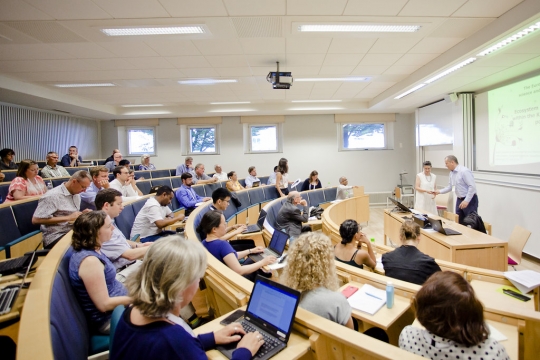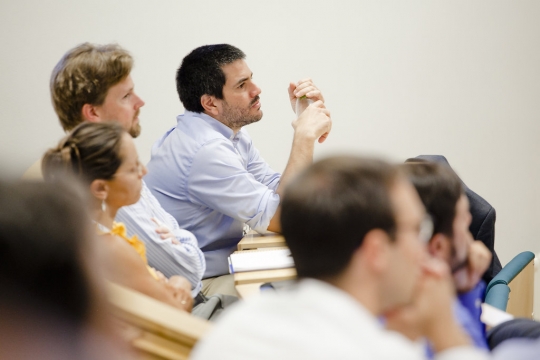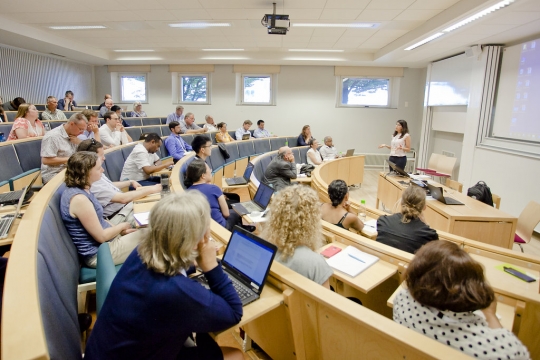The Ecosystem Services Accounting for Development Program (ESAfD) participated in the 6th World Congress of Environmental and Resource Economists through several appearances in academic sessions and a special policy session coordinated by the ESAforD program researchers.
One of the highlights of ESAforD’s participation during the conference was the “Ecosystem services valuation and accounting for better policies” policy session. The ESAforD Research Program and this session is an effort to conduct and communicate empirical research on ecosystem services valuation using techniques that are consistent with the accounting framework. The System of Environmental-Economic Accounting (SEEA) provides an internationally agreed statistical standard to describe the interrelationship between the economy and environment, however, there is lack of consensus on the construction of an international standard for many ecosystem services’ accounting, such as water purification and pollination.
The United Nations Statistical Division (UNSD) is responsible for pushing the process of constructing an international standard, with this aim, it launched a global review process on ecosystem services accounting to reach a standard in 2020.
“Both initiatives met during the London Group meeting in 2017 in San José, Costa Rica, and we distinguish a great potential to partner in future activities, by helping to bring closer the accounting and the environmental economists accounting, following up on this we organized jointly with the International Union for Conservation of Nature (IUCN) this policy session” stated Mattias Piaggio, ESAforD and EfD Central America researcher.
The objective of the policy session was to bring together the accounting and environmental economists to enhance the work on ecosystem services valuation for accounting. The session was chaired by Juha Siikamäki, Chief Economist of IUCN. Bram Edens, Senior statistician at UNSD, presented the ecosystem services accounting framework. Matías Piaggio, Senior research fellow at EfD, presented empirical work on ecosystem services accounting for valuation from the ESAfD project. Then, a round table took place, with the participation of practitioners and researchers working closer with the implementation of the accounts. Jane Turpie, Senior research fellow at EfD South Africa, presented on the valuation of ecosystem services for accounting in South Africa. Irene Alvarado, Chief of Environmental Statistics at the Central Bank of Costa Rica presented on the implementation of the SEEA-EEA in Costa Rica. Alessandra La Notte, Researcher at the Joint Research Center of the European Commission, presented on the construction of ecosystems accounts and policy application in Europe.
The session was attended by more than 40 researchers and practitioners worldwide. The presentations and the round table gave place to a rich open discussion on collaboration across disciplines and paths to follow. This has been an important stage looking for future collaboration and involvement of environmental economists on ecosystem services valuation for accounting.
Also, ESAfD presented individual papers during the WCERE 2018. EfD Ethiopia researcher Dawit Mulatu chaired and presented at the Ecosystem Services and Biodiversity session presenting his paper “Valuing Resident’s preferences for improved urban ecosystem services: Recreation, economic space development and nature restoration in Addis Ababa, Ethiopia”, EfD China researcher Zhaoyang Liu was part of the Hedonic pricing session with the paper: Hedonic Value of the Area of Urban Green Amenities: The Case of Beijing, both papers are part of the ESAforD program learnings.
The Ecosystem Services Accounting for Development (ESAfD), is a project implemented by the Environment for Development (EfD) initiative and the Swedish Environmental Protection Agency. The project works on water purification, pollination, and urban green areas.
For more information on ESAforD click here.


